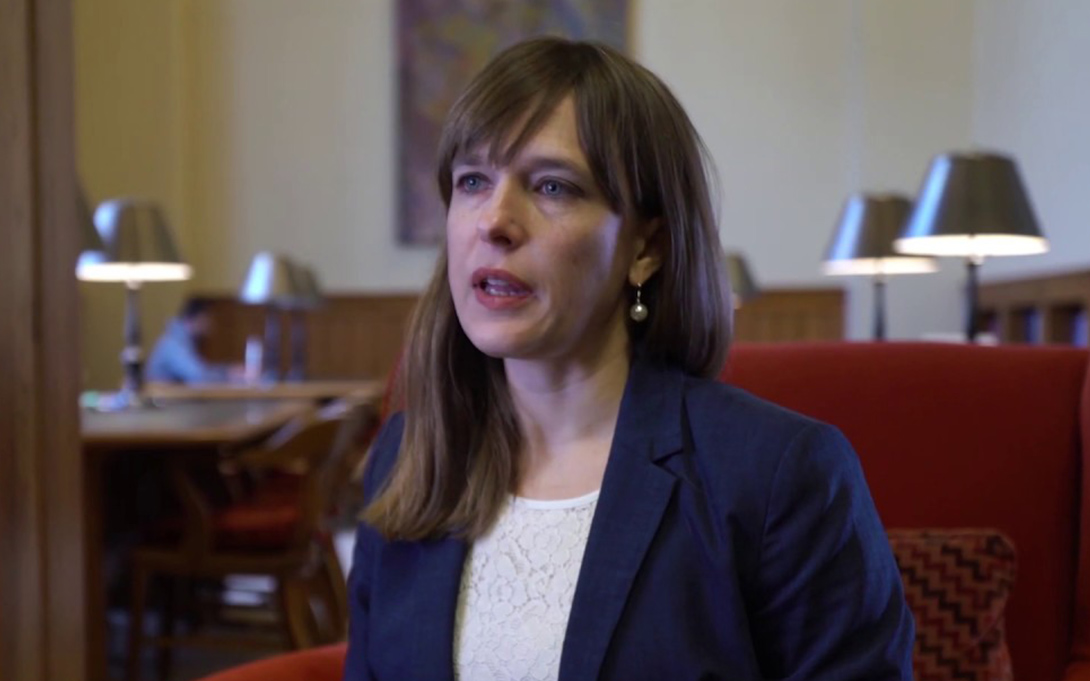
Jennifer Erb-Downward, senior research associate at Poverty Solutions at the University of Michigan, testified before the U.S. House Subcommittee on Early Childhood, Elementary, and Secondary Education on Wednesday, May 19. The hearing was titled “Picking up the Pieces: Strengthening Connections with Students Experiencing Homelessness and Children in Foster Care,” and the other witnesses included the executive director of the School District of Philadelphia, a foster parent, and the Virginia Superintendent of Public Instruction.
At the hearing, Erb-Downward shared findings from her research on the educational challenges faced by students who do not have a stable place to live. In a new analysis of student discipline data from the Michigan Department of Education, Erb-Downward found homeless students are suspended or expelled at a rate four times higher than their housed peers who are not economically disadvantaged. Erb-Downward’s research also found 1 in 4 students who had experienced homelessness at any point during middle or high school dropped out of school.
“While housing is critical, housing alone does not close the educational gap faced by students who have experienced homelessness. Without the needed school supports, homelessness and housing instability have lasting educational impacts on children,” Erb-Downward said during her testimony.
She also outlined the ways the COVID-19 pandemic has made it more difficult for schools to identify and support students experiencing homelessness. In the fall of 2020, Erb-Downward partnered with SchoolHouse Connection, a national nonprofit working to overcome homelessness through education, to analyze responses to a survey sent to a national network of school homelessness liaisons.
The survey revealed the number of students identified as homeless dropped by 28% — 420,000 fewer students nationwide — compared to the previous year, even as school homelessness liaisons reported greater need in their communities during the pandemic. Another key finding was that only 18% of liaisons reported spending COVID-19 relief funds provided by the CARES Act to support homeless student outreach.
A bi-partisan group of U.S. Senators cited those survey findings in a letter to the U.S. Department of Education about implementing the $800 million designated in the American Rescue Plan Act for identifying and supporting students experiencing homelessness.
Erb-Downward said it is important that money is used to increase the capacity of school homelessness liaisons and to bridge structural gaps that would otherwise prevent families from accessing the support they need.
Related: What the American Rescue Plan means for children experiencing homelessness
“The longer a student who is homeless goes unidentified by their school, the more challenges that child faces and the more likely it becomes for them to struggle academically and socially at school,” Erb-Downward said during the hearing. “As we move forward, it is critical that the money in the American Rescue Plan set aside for homeless students be used to support robust identification practices at schools. The pandemic has led thousands of children who are homeless to slip through the cracks. We must find and support them.”
This article was written by Lauren Slagter and originally published by Poverty Solutions.
